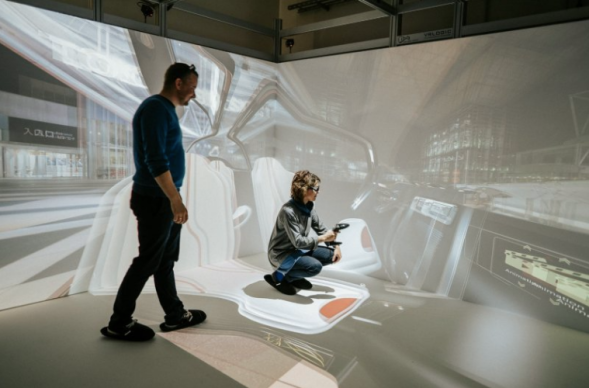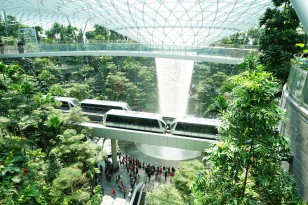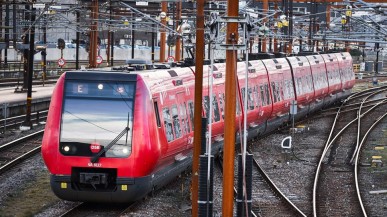Blog / Disruptive Technologies
Digital Transformation: The key to competitive and sustainable cities
Categories

The digital transformation of our cities is the opportunity to maintain or increase their competitiveness in the world, their attraction of talent and their generation of value and wealth. If we lose this opportunity, perhaps unique, others will come and take our piece of cake.
For years, the digital transformation theme has been flooding a large part of the productive sectors as the engine for change in organizations. In the case of cities, this digital transformation is not something new either, rather it comes from long ago and largely linked to the smart cities concept. However, it is an unfinished process that, even in many cases, it has not even started, or it has only been piloted. It is therefore a pending task for both companies and cities. We can say that in this field, for now, the only ones who have done their part are the citizens.
The digitalization of our cities was a previous process that the pandemic has accelerated it. This new context has advanced the process of digital transformation of our cities. An acceleration that, on the other hand, is encouraged by the opportunity for reconstruction. Europe, in this introspective meditation because of COVID, has done some homework that it had been putting off for a long time, and finally, the question has been asked: What do we want to be when we grow up? Or rather, in what should we still compete and differentiate ourselves nowadays and in the coming years? The answer has been unanimous: Digital and Sustainable Transformation.
Digitalization and Sustainability for transforming cities
With that premise, we have no choice but to lay the foundations of what our cities have to do, to transform themselves digitally. Is it about technology? If we put together AI + ML + Blockchain + Digital Twins + IoT, do we have it already solved with that? Not even close, although someone might sure believe so. The key could be to analyze what makes a competitive city and how to prevent it from losing that competitiveness and / or gaining another advantage.
It is not just a competition with other markets at the country level, but there is also an internal competition with other cities that fight for the same things: talent and business attraction and quality of life. If we look at the trends of medium-sized cities around the world, we see how the current crisis has given them an opportunity to compete with large cities. Medium cities with high quality of life ratings are investing in the digital transformation of their cities to compete face-to-face with large cities. Cities all around Europe, as Cardiff, Leeds, Bonn, Leipzig, Cologne, Lyon, Bordeaux, San Sebastian, Malaga or Lisboa are disputing the talent attraction to the top cities. Moreover, the claim is not minor: higher quality of life at lower prices than in larger cities. All this, of course, counting that teleworking has come to stay.
In this scenario, digital transformation has to play a differential role, projects like DARE (Digital Environment for collaborative Alliances to Regenerate urban Ecosystems in middle-sized cities) in Ravenna or Next Generation Micro Cities of Europe in Ventspils & Valmiera are just a great example, providing tools to connect people, businesses, knowledge, spaces and value. Mid-sized cities should seek to exploit such an opportunity by providing this digital infrastructure and facilitating economic incentives for hybrid remote-physical working spaces. We were complaining for years about the depopulation of our cities and towns and probably the post-pandemic world will bring them, somehow, the solution.
 Valmiera Vocational Training Center, in the context of Next Generation Micro Cities' project, introduces the 3D Virtual Cave, the only such 3D virtual laboratory in Eastern Europe. Source: Urban Innovative Actions.
Valmiera Vocational Training Center, in the context of Next Generation Micro Cities' project, introduces the 3D Virtual Cave, the only such 3D virtual laboratory in Eastern Europe. Source: Urban Innovative Actions.
 almiera Vocational Training Center, in the context of Next Generation Micro Cities' project, introduces the 3D Virtual Cave, the only such 3D virtual laboratory in Eastern Europe. Source: Urban Innovative Actions Nevertheless, we know that’s not easy.
almiera Vocational Training Center, in the context of Next Generation Micro Cities' project, introduces the 3D Virtual Cave, the only such 3D virtual laboratory in Eastern Europe. Source: Urban Innovative Actions Nevertheless, we know that’s not easy.
The approaches on digital transformation, up to date, have been based mainly on efficiency in the provision of services and somehow on the basic digitization of processes. The change that is to come, will transform our industries and our cities, since, if they don’t, they will be relegated to the insignificance. This time there are no excuses, the NextGeneration aid package in Europe has come to support this transformation, as in the rest of the world economies, a strong economic stimulus in two lines: the digital transformation and the green transformation, to compete not only outside, but also inside.




